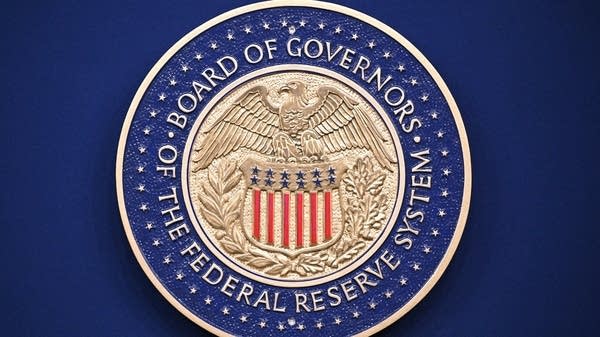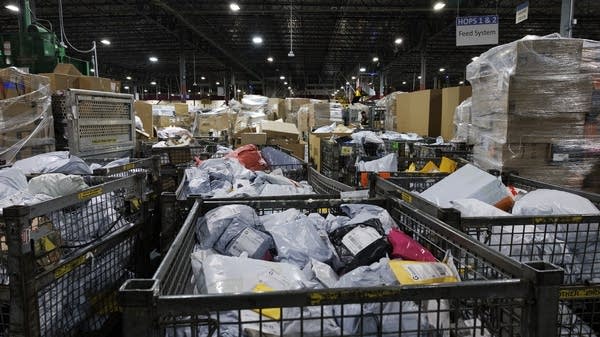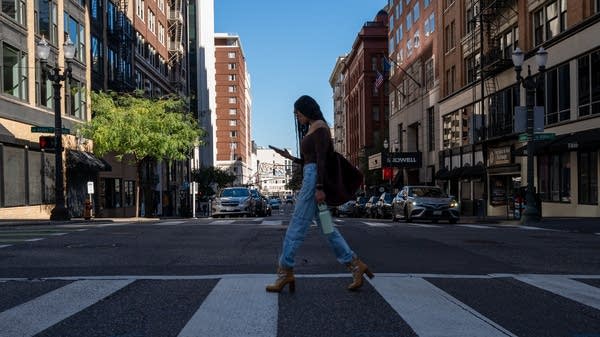Community banks remain resilient through uncertainty
Through uncertainty about the economic future of the U.S., community banks remain resilient and reliable safe haven as consumers look to save their money.

One word seems to accurately explain the current economic climate: uncertainty.
As President Donald Trump fights over interest rates with Federal Reserve Chair Jerome Powell and the U.S. builds trade barriers between itself and the rest of the world, uncertainty about the future of the economy is growing.
Uncertainty, is bad for business. And “bad for business” business, isn’t great for bankers. But managing risk and uncertain futures is part of the industry, and banks remain “resilient,” said Laurie Stewart of Sound Community Bank in Seattle, Washington.
Stewart spoke with Marketplace host Kai Ryssdal about the state of banking and how her clients are reacting to these uncertain times. Below is an edited transcript of their conversation.
Laurie Stewart: I was thinking, Kai, we started these conversations more than five years ago, before COVID.
Kai Ryssdal: Oh, my goodness, did we really?
Stewart: We talked about things like PPP loans.
Ryssdal: The good old days, the bad old days, I don't even know. But well, look, you have guided us in the banking world through thick and thin, and as we look at this economy right now and all that's going on, how are you feeling?
Stewart: Well, you know, uncertainty is like a fog descending on us, right? Our employees are uncertain, worried about their 401(k)s. Our clients are uncertain. They don't know whether to go vertical on construction projects. The news cycle is 24 seconds instead of 24 hours, so that uncertainty really impacts productivity and what gets going. The good news is banks are resilient, and we're here, and we want to be here for our clients as they get more comfortable.
Ryssdal: The catch, of course, is that your job, no small part of it anyway, is managing risk. And how does one running a community bank like yours manage that risk when the fog is so thick, and honestly, you don't know. You know most times when there's fog, you kind of know when it's going to lift, sort of, now we just don't know.
Stewart: That's right. I feel like I'm that big ship out in Puget Sound. But you know what I know about those ships out in Puget Sound, when the fog comes in, they slow down, but they don't stop. They're cautious, but they're not frozen. So, we continue to keep our ears to the market to hear from our folks and try and address each risk as we can. Remembering that we built up capital for uncertain times, so we can take a little bit of risk when things are in the state they are like now. And you know, Kai, another risk we think about is fraud risk. And so, there's lots of different things to think about, interest rate risk, credit risk and now fraud risk.
Ryssdal: How are your depositors acting? Are they saying, “Laurie, what's going on”? Are they saying, “Should I leave my money in the bank”? I mean, you know, we're not that far removed from Silicon Valley Bank and all that, and now, you know, there's all this.
Stewart: You know, my email and my voicemail box just has lit up this quarter with lots of clients at lots of different phases of their life being anxious and wanting to talk about, you know, what should I do? I talked to a very mature client that said his dad used to bury money in the backyard, and that's what he was going to do. He was going to take his money and bury it in the backyard. We talked about the fact that his wife was in a wheelchair, and I said it's going to be really hard for her to dig up that money and go to the grocery store, right? But I mean, it’s that kind of fear. But the good news is, when we talk through most of these things, folks get comfort with the banking system. You know, there's never been a penny lost in an FDIC-insured deposit account. And then we always say, it doesn't hurt to have a little cash around, but not a lot. You know, the safest place is in the bank. But again, I do talk to tons of clients about this, Kai.
Ryssdal: When you talk to your business clients, what's their worry about growth? I mean, look, the way this economy grows is by businesses making investment, and businesses don't do that when there's uncertainty. What's your vibe?
Stewart: It really depends on the business, right? Depends on whether I'm that small restaurant serving Mexican food and looking for tequila and avocados or whether I'm a builder of homes, anxious about supply chain and costs. And in talking to our contractors, they think a huge number of their workers are undocumented, so they may have supply chain cost and immigration issues, so a few of them have decided to pull back. Another thing I hear is, you know, we were excited about maybe there would be a spring home buying season this year, and that, I don't want to say it's dried up, but there is certainly less interest in the last couple of weeks and more concern about, should I make that transaction? Should I move forward?













